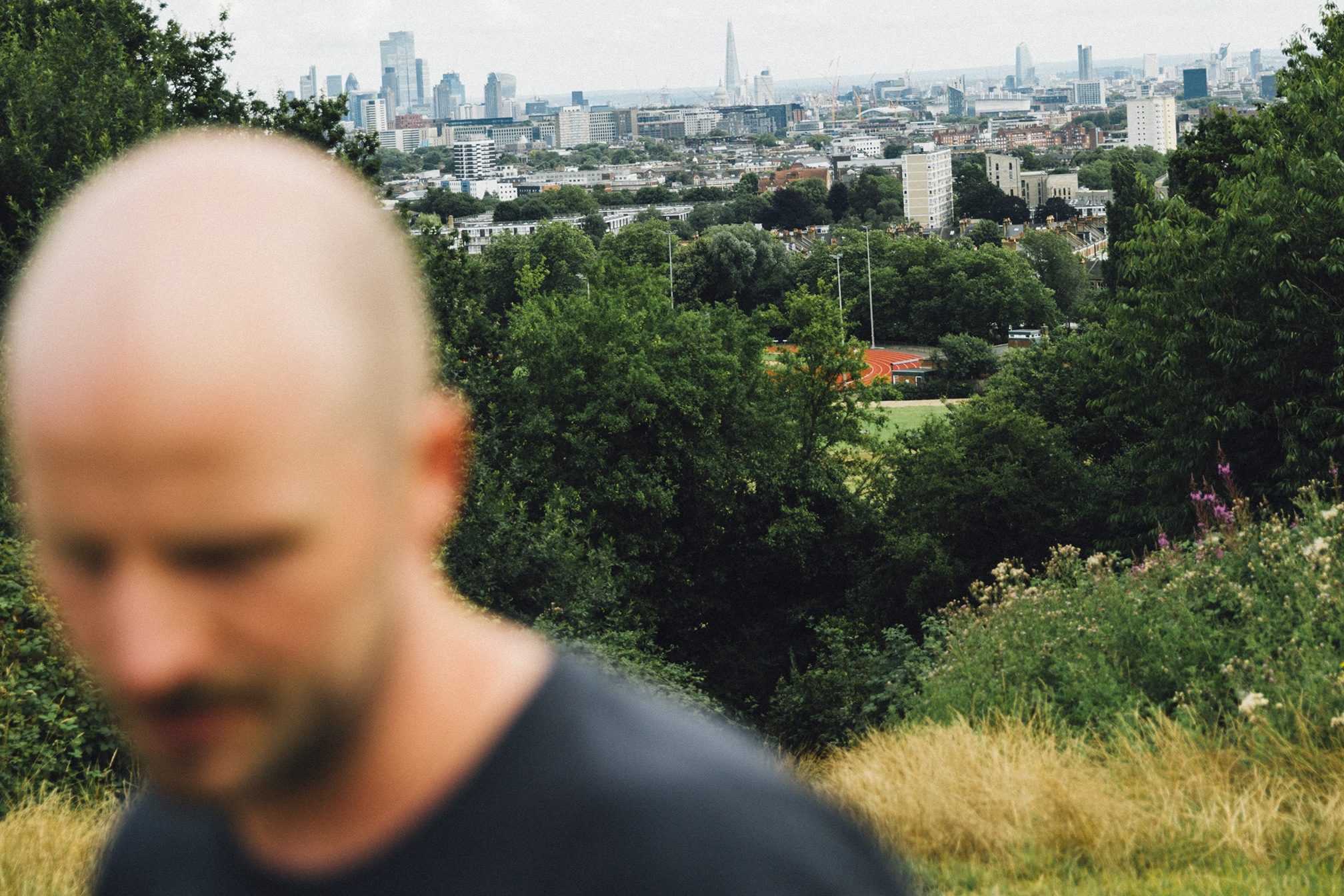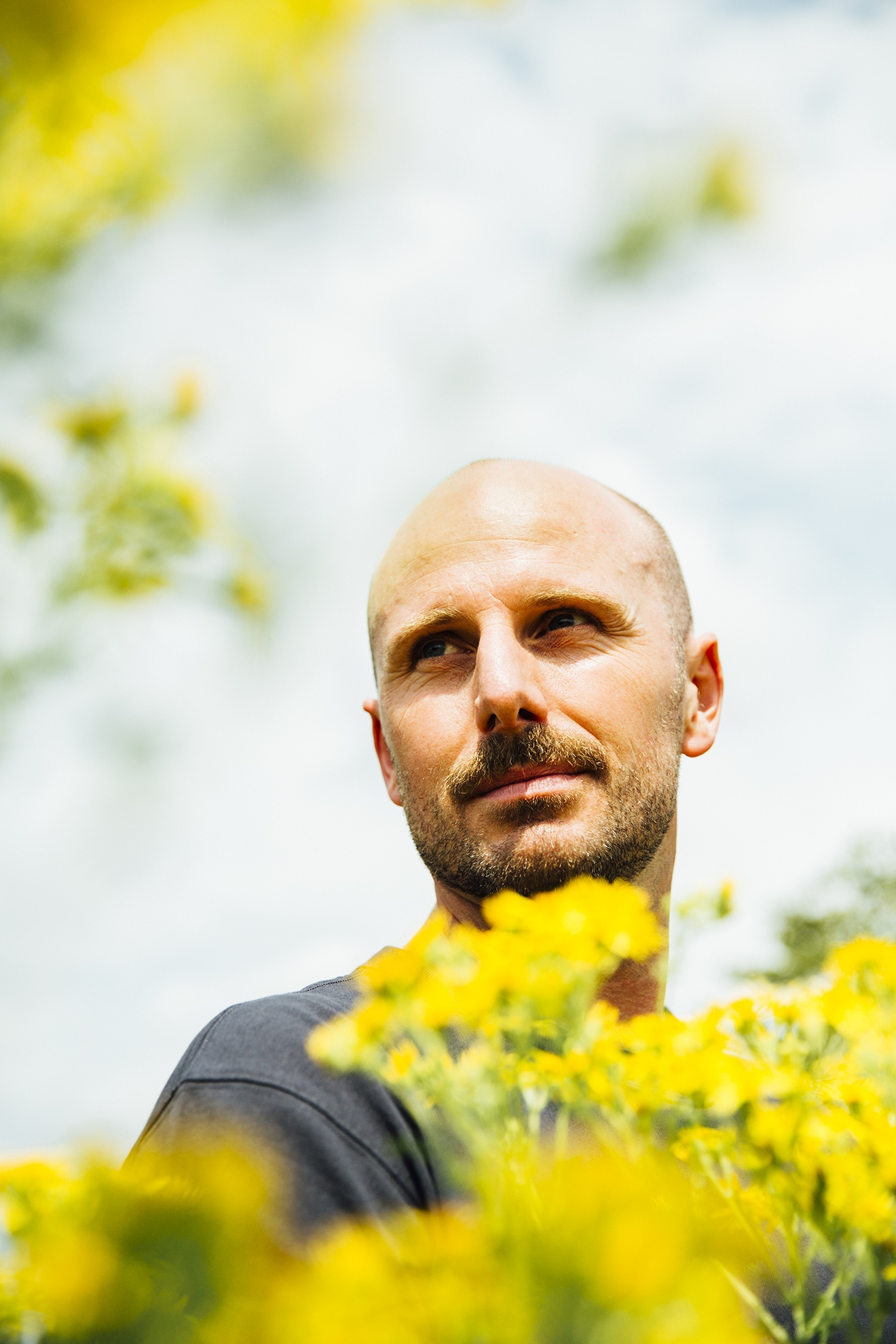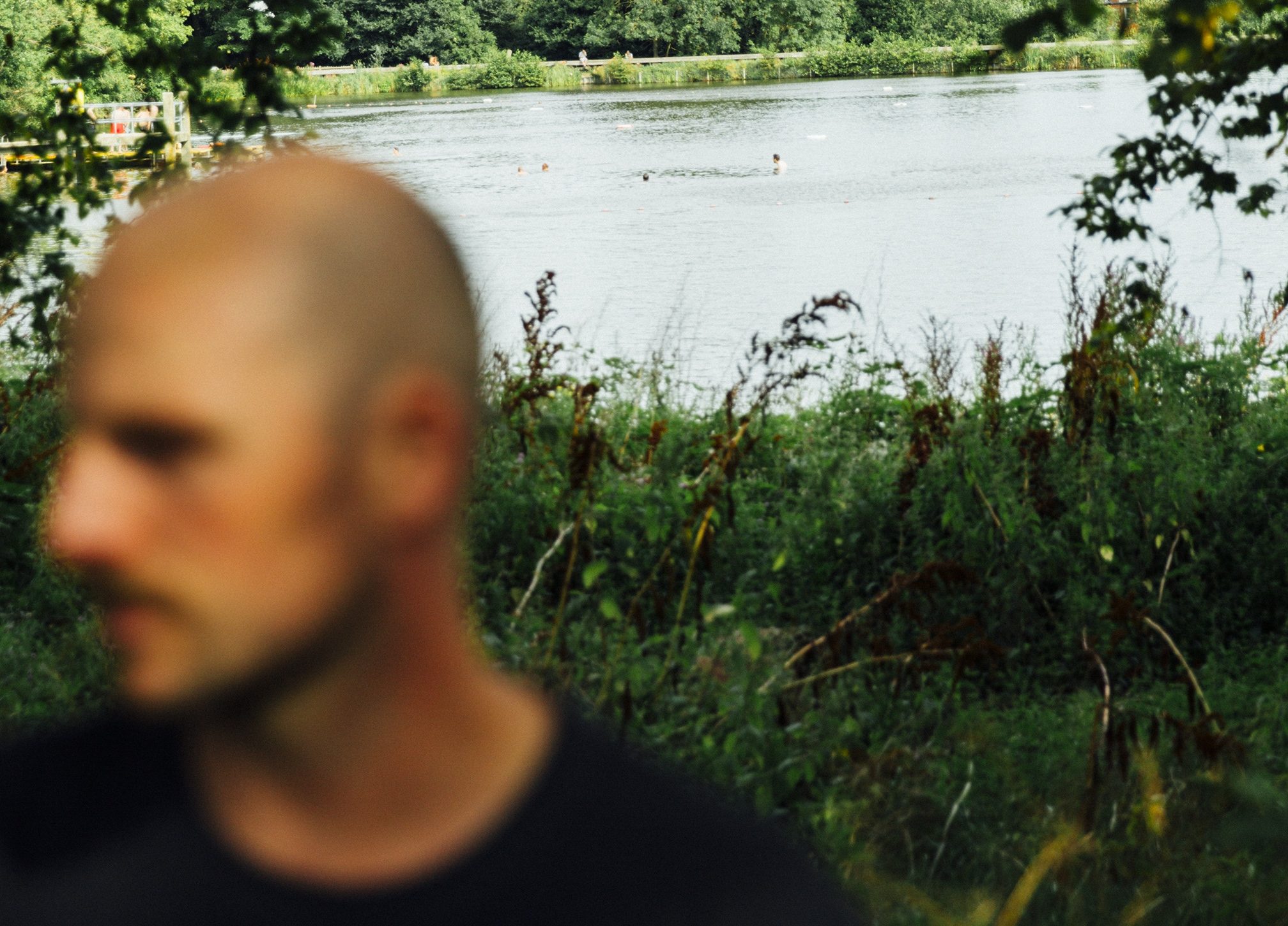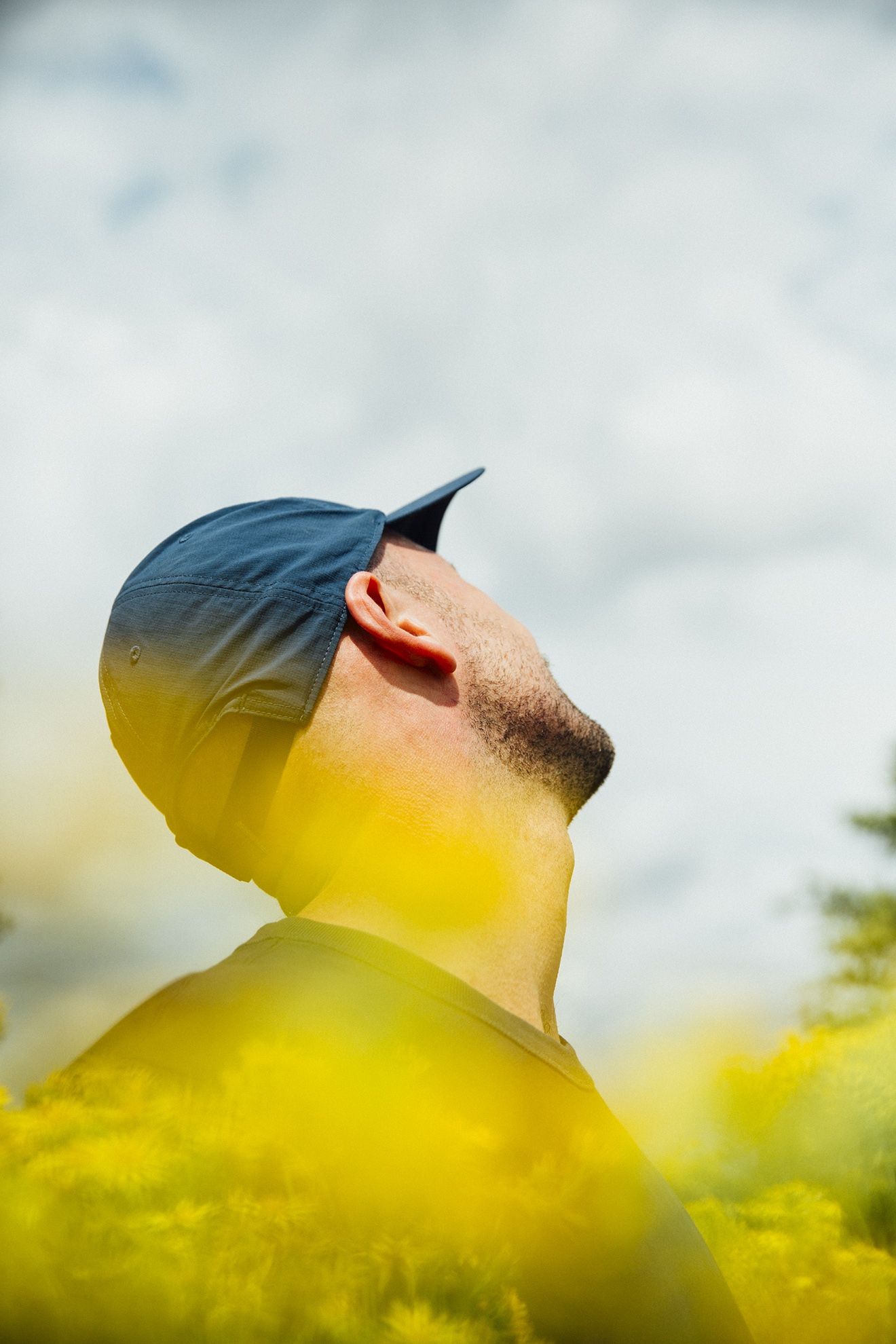 Features
Features
How Midland's debut album brings his unique lens to queer history
The 13-track LP 'Fragments Of Us' is a musical journey of identity acknowledgement, cultural inheritance, and an exploratory impulse that bridges the past and present — including imagining Arthur Russell at a dubstep night
Queer history, what we know of it at least, is passed down in fragments. Quite literally: From the ragged papyrus scraps of Sappho's 600 BCE lesbian love poems to the fading constellation of abandoned blogs that personalised fights for gay civil rights at the dawn of the 21st century, transmissions from LGBTQ+ ancestors come to us more in randomly quantised packets than reassuring waves of documentation.
Much of that's due to thousands of years of oppression and erasure of the community, of course, as well as the ever-evolving definition of what “queer” itself means, and how to archive its often-veiled cultural richness and political struggle. A generation of people lost to AIDS tore out even more connections to a legacy of fierce resistance and fabulous expression. Even now, with information available at whatever moment, queer figures can still recede into a hot pink mist of obfuscation.
While there's no textbook as yet of global queer history, dance and electronic music continue to function as invaluable conduits of queer forebears' lives, imaginations, and desires. Recent projects—such as record label Dark Entries' series of previously unreleased porn soundtracks by San Francisco synth pioneer Patrick Cowley, or ambient composer Jake Muir's electro-concrète ‘Bathhouse Blues’, which sampled campy dialogue and classic gay cruising spaces' interiors—have reanimated the spirits of gay men lost to AIDS, especially.
Now comes debut album ‘Fragments of Us’ from Midland, the long-time London-based DJ-producer and Graded record label owner's unique spin on queer historical rediscovery. A restlessly innovative, dub-influenced collection of 13 meditations on queer heroes and experiences, ‘Fragments of Us’ honours the past by stepping out of it and documenting Midlands' journey, through music, toward recognising his own identity and cultural inheritance. It features voices of AIDS-era heroes like radical activist David Wojnarowicz and filmmaker Marlon Riggs, impressions of contemporary queer dance music festivals like the NYC Downlow at Glastonbury and Honcho Campout in the US, snippets of news reports, and personal histories from living queer DJs in Jonny Seymour of Australia's Stereogamous and Luke Howard from Horse Meat Disco, offering a spectrum of Western queer male experiences from before and after the AIDS pandemic.

“I very much got into music and DJing through a straight path,” Midland says over a slice of spinach quiche at a cafe near London's Arnold Circus. After a 15-year residency at fabric, a string of collaborations with acts like Pearson Sound and Bicep, and international hits like boogie-steamer ‘Final Credits’, he discovered a whole different side of himself—and the dance music scene. “It was that classic scenario where you have a circle of great friends, and you just never have to face things. For so long, I was running away from it, queerness was something I turned away from, until everything suddenly gave way, in a sense. I got married to my husband in 2014, and literally in 2016 we made our first gay friends. I was headlining in the straight world, and just never experienced this other dimension, really, even though of course it was present in the spaces I was playing.
Read this next: Deep explorations: Midland's path to DJ stardom
“But then I started exploring more. I came to San Francisco to play the Honey Soundsystem party and [Honey co-founder] DJ Jackie House Alice in Wonderland-ed me into this whole new world of queer parties and DJs. And at this time the festivals were becoming more open to and aimed towards queer crowds. I was going into these queer spaces not as a headliner, not wanting to leverage that, just wanting to just be a part of it all. It was pretty much the opposite of the usual music industry trajectory. It felt very non-hierarchical, democratic, just turn up and contribute to this scene. It was such a community. It became a whole second chapter in my life.”
The awakening took hold quickly, manifesting both socially—with Midland, fully flaunting his queer identity, sporting a “God Loves Fags” tee while playing the AVA Festival Boiler Room—and musically, with the DJ delving into disco, house, and early synth experiments with a renewed passion. Never an artist who shied away from dropping more experimental tracks during his sets, welcoming dancers into his personal headspace, Midland polished an even more intimate sound that channeled historical queer dancefloor experiences through contemporary sounds and unexpected edits, obliquely yet directly. Along the way, he in turn helped open up queer dancefloors to genres like drum ‘n’ bass and dub that were rarely heard and quickly embraced.

Midland's queer awakening was also literal. “In 2016, I met Dan Beaumont at the Bloc Festival—he was a founder of Chapter 10, a legendary queer party that really brought the Berlin aesthetic to the UK. They were ridiculously good parties. The Chapter 10 folks said, 'We're starting a book club. Come!'. So of course I show up with just some random book. And they said, 'You came!'. For five years we met every six weeks. We read through classic queer books like Andrew Holleran's Dancer from the Dance, Alison Bechdel's Fun Home, James Baldwin's Giovanni's Room, Zami, byAudre Lorde. A lot of this stuff that blew my mind.
“One of the books was David Wojnarowicz's memoir Close to the Knives, from 1991, which changed my life. I'd never seen someone talk about this rage, queer rage, that I couldn't put my finger on before. He was so open about his fear of dying, his helplessness in the face of this terrible thing that was overwhelming everybody. But by doing that, he was documenting a whole dimension of queer experience that gets lost in all the sadness and just forgetfulness about what it was like. At least to me, coming at it from this side of things. I started doing deep research on his work at the Fayles Library in New York, and worked with his estate in terms of creating music around him.”
Read this next: Queer the dancefloor: How electronic music evolved by re-embracing its radical roots
That exploratory impulse extended to filmmaker Marlon Riggs, who created work about the Black American queer experience during AIDS in seminal documentary Tongues Untied and dabbled in house music composition himself in searing, experimental music video Anthem. In ‘Fragments of Us’ track ‘Construct a Future’, Midland samples Riggs speaking on the ease with which the struggles of people of colour are ignored, even within the queer community itself, and the “mutual apathy” that can come as a result. “I discovered Marlon Riggs during the Black Lives Matter movement,” Midland said. “I came across his films and interviews and what he was saying was so prescient and timeless. I reached out to his estate as well.”
Another queer spirit overseeing the ‘Fragments of Us’ enterprise is avant-garde disco composer and cellist Arthur Russell. “Arthur spurred all these questions in my mind: Imagine if he hadn't died, imagine if I could have taken him to one of the early dubstep nights, what would he have made of these technological advances? I thought, ‘What piece of equipment in my studio would he gravitate towards?’. I had this little box which makes crazy sounds, so I dug it out and hooked it up to a pedal, and recorded loops for hours, into the sunrise. It seemed like something he would have done. With everyone who has passed away on this album, I was very much in communion with the spirits.”

The loss that hovers over ‘Fragments of Us’ is balanced by the celebration of a queer party scene revival, at least through the the end of the 2010s, that rivalled the pre-AIDS revelry of the late 1970s and early '80s. “The seeds of the album were planted in 2018,” Midland said. “I'd been going to queer festivals like Downlow, Honcho, really all over, and having moments of togetherness that I never expected. I imagined what it would have been like in gay sacred spaces like Fire Island in the 1970s. There's definitely some parallels there. And then I would have these moments of imagining being on the dancefloor, that sense of unity, and people disappearing every month, just gone. I realized that, at 37, I was now older than a lot of those people, and the people I had been reading and listening to from that time. ‘Fragments of Us’ started taking shape slowly during those moments.
“Then the COVID pandemic came and I started to listen to music completely differently. I was listening to full albums front to back again, and starting to have a much broader vision of what I wanted to do. I fell back in love with music in the sense of making this big statement. I wanted to make albums like I was listening to, like Herbie Hancock. Things like track sequencing became obsessions. My way of making music completely changed, as well. Like most, I had stepped back from DJing during that time—the thought of it actually repulsed me then—and I knew I needed to take that time to immerse myself in production techniques and sonics. The album is kind of a diary of my studio process evolving.
“The thing that unites the album, for me, is that the synths sound alive and real. I wanted the album to sound handmade, not too digital, like a collage. The tracks are quite sparse, but there's a lot going on in them, and some crazy delay effects. When making the music, I set up signal chains where you could throw in all kinds of elements, and they would be kicked out in a way you couldn't anticipate. There's a slightly organic, slightly unpredictable feel to the songs that corresponds to the world they are in my head.
Read this next: “NYC Downlow's slutty little sister!”: Why The Meat Rack was bigger and better than ever in 2024
“For instance, the second song, 'Fragments of Us' was intended as an homage to Patrick Cowley's work in the soulful disco era—the synths are slow and fat and sensual. And 'David's Dream', quoting Wojnarowicz's fear of imagining his own funeral, was meant to be paranoid and tense, like you're in the middle of nowhere, just driving with no end. For the NYC Downlow track [‘NYCDL’], I made 20 versions of it, and the one used on the album was made right before mastering. If you've ever walked into the NYC Downlow, it's overwhelming, it's dark, it's warm, it's physical—I wanted that feeling of being totally intoxicated by the atmosphere. The end of that track takes you into the smoking area there, and then the next track opens with the smoking area of Chapter 10. There are those little Easter eggs for those who know, these bits of essential ephemera that set off a whole set of associations.”
After summoning so many queer spirits, ‘Fragments of Us’ ends with a gossamer benediction, ‘First Light Over the Grove’, which channels Midland's impression of dawn breaking over the huge outdoor dancefloor at Honcho Campout, deep in the Pennsylvania woods, in 2018. “It was really one of the first tracks I finished, and that was where the inspiration for the whole project started to form. It was originally supposed to kick off the album, but after listening to everything, I realised it needed to go at the end. I wanted send everyone off with a new beginning. For all the subject matter on the album dealing with the loss of these incredible souls, I wanted to acknowledge that what they gave us, even in their short lives, was infinite possibility, too.”
'Fragments Of Us' is out now, get it here
Marke Bieschke is the co-founder of 48 Hills and a freelance writer, follow him on Twitter


